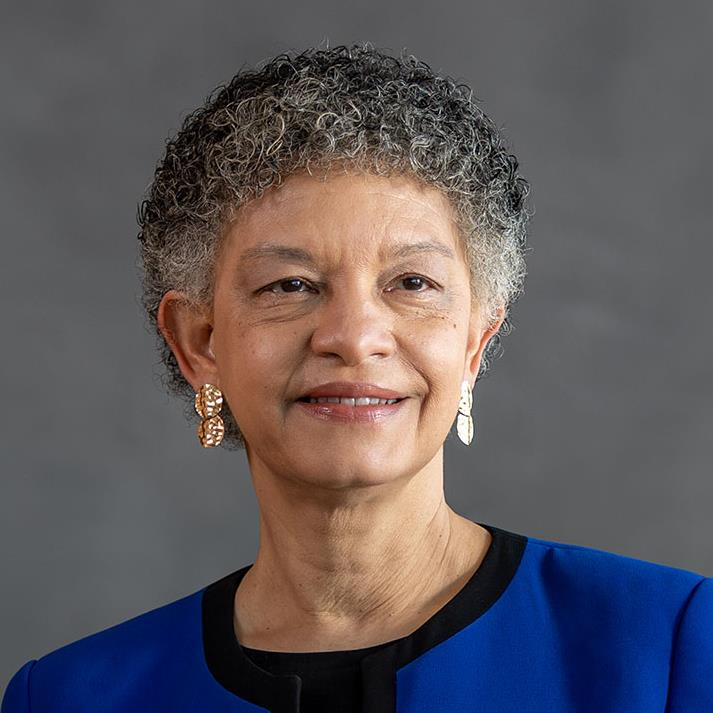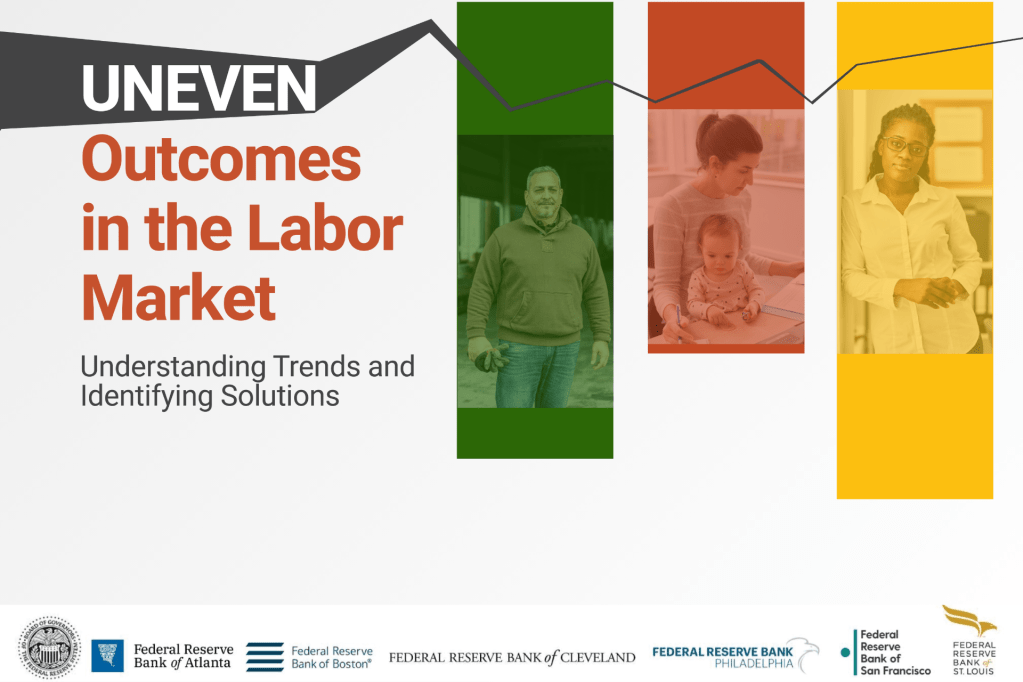Day 2: Left Out or Dropped Out? Continuing the Conversation on Men and Women in the Workforce
Listen to the podcast
WATCH ON DEMAND
Uneven Outcomes in the Labor Market: Understanding Trends and Identifying Solutions: Left Out or Dropped Out? Continuing the Conversation on Men and Women in the Workforce, February 6, 2024 (video, 1:24:59). Open transcript in new window.
Economic and cultural factors affect an individual’s decision about engaging with the workforce. This seminar, presented by the Federal Reserve Board of Governors and the Federal Reserve Banks of Atlanta, Boston, Cleveland, Philadelphia, San Francisco, and St. Louis on February 6, 2024 gathered experts who shared research on how some incentives and barriers drive differing labor force participation decisions for men and women.
Speakers

Kristy Buzard
Associate Professor of Economics
Maxwell School of Citizenship and Public Affairs, Syracuse University

Chandra Childers
Senior Policy and Economic Analyst
Economic Policy Institute
Discussant

Susan M. Collins
President & Chief Executive Officer
Federal Reserve Bank of Boston
Principal

Evgeniya Duzhak
Regional Policy Economist
Federal Reserve Bank of San Francisco

Jennifer Fernandez
Senior Community Development Analyst
Federal Reserve Board of Governors

Leah Gjertson
Senior Researcher
Chapin Hall, University of Chicago

Richard Reeves
President
American Institute for Boys and Men
Discussion framer

Huanan Xu
Associate Professor of Economics
Indiana University, South Bend

Agenda
Welcome
Jennifer Fernandez
Senior Community Development Analyst
Federal Reserve Board of Governors
Opening Remarks
Susan M. Collins
President and Chief Executive Officer
Federal Reserve Bank of Boston
Day’s Framing
Richard Reeves
President
American Institute for Boys and Men
Labor Market Transitions over the Business Cycle: Gender Differential in the United States from 2001 to 2020
Download presentation slides (pdf, 304 KB)
Presenter: Huanan Xu
Associate Professor
Indiana University South Bend
Pulled Out or Pushed Out? Why So Many Men No Longer Work
Download presentation slides (pdf, 195 KB)
Presenter: Evgeniya Duzhak
Regional Policy Economist
Federal Reserve Bank of San Francisco
A Natural Experiment Evaluating the Effects of Subsidized Child Care on Mother’s Employment
Download presentation slides (pdf, 314 KB)
Presenter: Leah Gjertson
Senior Researcher
Chapin Hall at the University of Chicago
Who You Gonna Call?: Gender Differences in Demand for Parental Involvement
Download presentation slides (pdf, 234 KB)
Presenter: Kristy Buzard
Associate Professor of Economics
Maxwell School of Citizenship and Public Affairs, Syracuse University
Discussant and Q&A
Chandra Childers
Senior Policy and Economic Analyst
Economic Policy Institute
Closing
About the Series
In 2024, community development staff from the Federal Reserve Board of Governors and the Federal Reserve Banks of Atlanta, Boston, Cleveland, Philadelphia, San Francisco, and St. Louis hosted, Uneven Outcomes in the Labor Market: Understanding Trends and Identifying Solutions. The conference convened a diverse network of researchers, policymakers, and practitioners to examine inequities in labor market outcomes and explore the implications of disparities on aggregate economic performance, individual workers, and communities. They also discuss new directions for policy and research.
Understanding employment conditions requires evidence from a wide spectrum of sources. To this end, the Federal Reserve is interested in highlighting research that examines disparities in employment, labor force participation, income, and wealth across demographic groups. Analyzing disparate outcomes can inform policy that identify those who are excluded from the mainstream economy and suggests pathways for inclusion.






